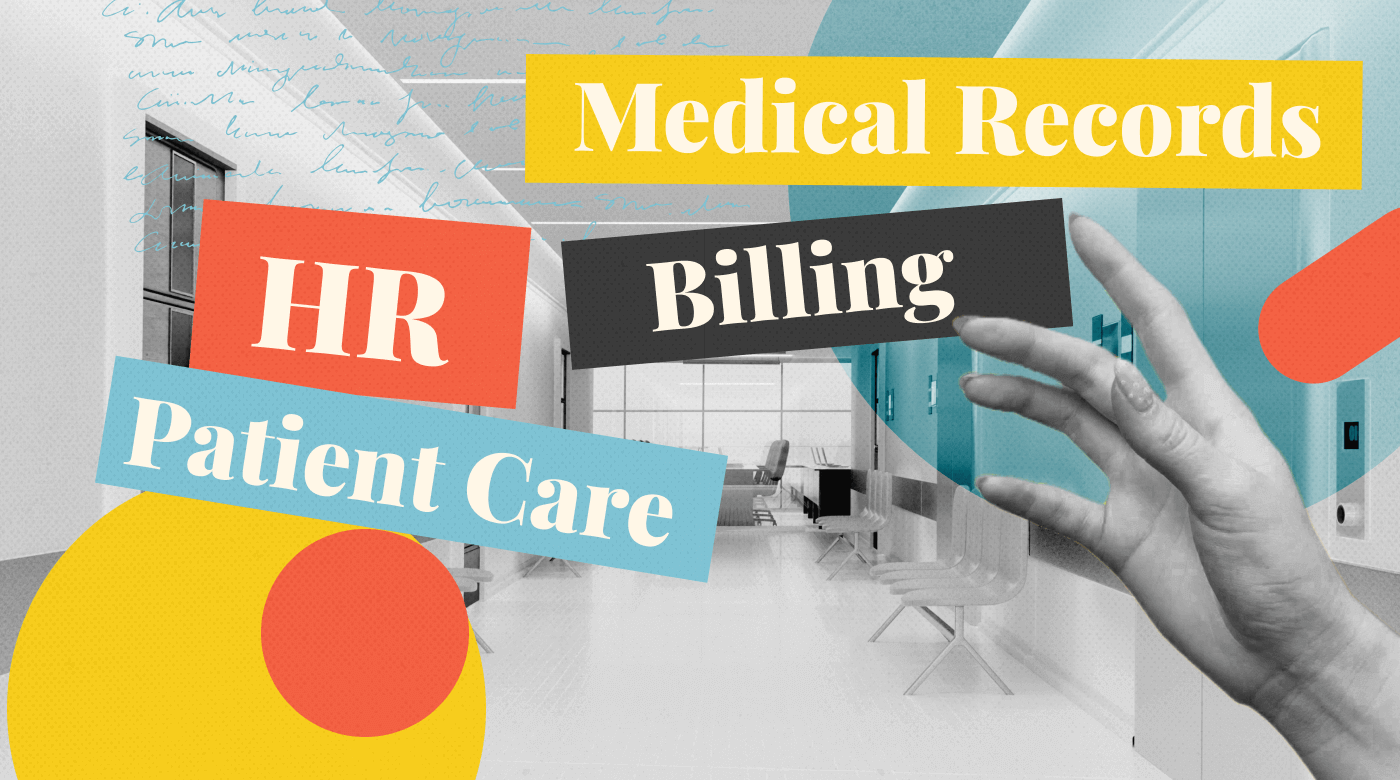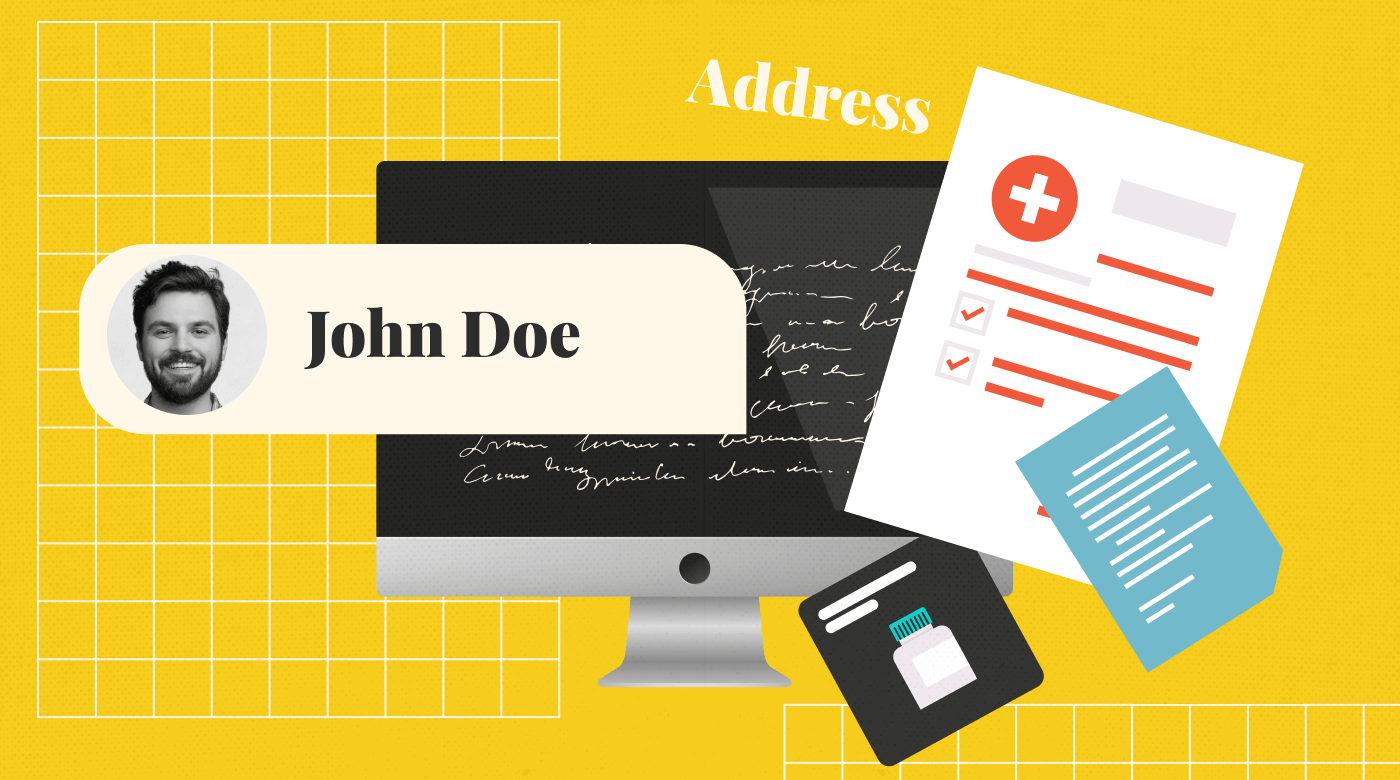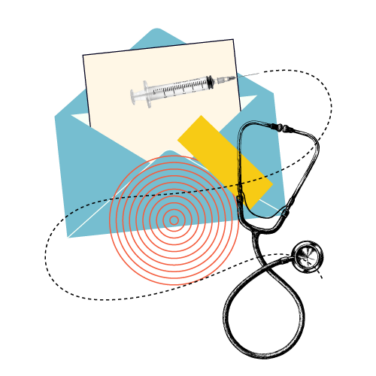Many doctors are drawn to the medical field to help others, but running a private practice often involves more than they expected. The complexity of managing a practice is likely a factor in the decreasing number of doctor-owned practices. In the US, the percentage of self-employed physicians has dropped from 54% in 2018 to 49.1% in 2021.
Despite these trends, owning and operating a private practice can be fulfilling. It requires skilled management, often by a professional practice manager, to ensure that administrative tasks don't overshadow patient care.
Effective practice management involves a deep understanding of many aspects, from regulations to financials.
In this article, we'll explore the essentials of medical practice management and highlight the most effective technologies available today to streamline this complex process.
What Is Medical Practice Management?
Medical practice management is the operation of a healthcare practice. The goal is to balance providing high-quality patient care with maintaining an efficient, sustainable business.
Practice management involves:
- handling day-to-day operations
- scheduling appointments
- staff scheduling
- patient billing
- processing insurance claims
- budgeting
But, as practice managers know, it also includes less obvious tasks, such as staying up-to-date on healthcare regulations, developing a referral base, and managing the practice’s finances.
In short, medical practice management is a complex, multifaceted discipline that plays a big role in the success of any practice.
The Importance of Effective Practice Management
How well you manage your office can make or break your practice. After all, the medical staff may be brilliant, but if the office staff is grumpy or makes too many errors, top-notch doctors and nurses may not be enough to keep the patients coming.
So yes, medical practice management is central to an optimal patient experience and to the quality of patient care—and, ultimately, your practice’s reputation.
The Evolution of Medical Practice Management
The role of practice management has transformed significantly, influenced by the evolving healthcare industry and rapid technological growth.
From Administration to Strategic Leadership
- Regulatory Navigation: Practice managers now need to be adept at understanding and implementing complex healthcare laws and regulations.
- Financial Oversight: They are responsible for the financial health of the practice, including billing, coding, and revenue cycle management.
- Team Leadership: Managers must lead with a focus on patient care, ensuring the team delivers personalized and efficient service.
Adapting to New Expectations and Policies
- Patient demands for quicker, more personalized care have reshaped expectations.
- Healthcare policies and an emphasis on patient outcomes have altered the healthcare landscape.
- The integration of technology in healthcare delivery demands adaptability from practice managers.
Embracing Technological Advancements
The surge in technological advancements has revolutionized medical practice management:
- Practice Management Software: For efficient administrative operations.
- Electronic Health Records (EHRs): To maintain accurate and accessible patient records.
- Patient Engagement Tools: To enhance communication and care continuity.
- Telemedicine Platforms: For expanding care delivery methods.
These tools not only streamline workflows but also enhance patient care and support informed decision-making, leading to smarter, more efficient management practices.
Learn more about these technologies as we delve into the competencies required for a successful practice manager in today's dynamic healthcare environment.
How to Become a Medical Practice Manager
In a small practice, the physician who owns the practice may do double duty as the practice manager. But increasingly, a “practice manager” or “practice admin” is a separate position within the business.
So what qualifies someone to work as a practice manager?
Individuals may find their way into practice management from a variety of starting points and through different career paths. Becoming a medical practice manager often involves a special combination of education, practical experience, and skills development.

Educational Requirements
Educational degrees shape skilled practice managers for healthcare's dynamic demands. These are a small selection of what typical educational backgrounds that medical practice managers possess.
Undergraduate Education
- Healthcare Administration: A bachelor's degree in healthcare administration provides a solid foundation in healthcare systems and policies.
- Business Administration: This degree equips future managers with essential business and financial management skills.
- Nursing: A nursing background offers a clinical perspective that can be beneficial for patient-centric management.
Advanced Degrees
- Master's in Healthcare Administration: For those aiming for senior management roles, this degree offers in-depth healthcare knowledge.
- MBA: An MBA is valuable for high-level management positions, especially in larger practices, with a focus on strategic and financial planning.
These educational qualifications ensure that practice managers have a comprehensive understanding of healthcare laws, finance, and human resources.
Experience
Real-world experience in healthcare is crucial. It helps practice managers grasp the everyday workings of a medical practice and the challenges faced by healthcare providers.
- Administrative Roles: Experience in healthcare administration helps in understanding the intricacies of medical practice operations.
- Clinical Background: Clinicians transitioning to management roles bring valuable patient care experience that can inform management decisions.
This practical knowledge is key to becoming an effective practice manager.
Certifications
Some practice managers earn professional certifications, such as the Certified Medical Practice Executive (CMPE) credential offered by the Medical Group Management Association (MGMA).
Here are a few more:
- Certified Medical Manager (CMM): offered by the Professional Association of Health Care Office Management (PAHCOM). It covers topics like risk management, medical law, and patient relations.
- Certified Physician Practice Manager (CPPM): provided by the American Academy of Professional Coders (AAPC). It focuses on managing the revenue cycle, compliance regulations, HR, health information, and general business processes.
- Certified Medical Office Manager (CMOM): offered by the Practice Management Institute. It covers billing, collections, office operations, HR, and medical documentation.
These certifications provide specialized practice management knowledge and show potential employers that you’re committed to the field.
Skills
To excel as a practice manager, particularly in substantial healthcare settings, it's crucial to develop a robust skill set that includes:
- Leadership: The ability to guide a team, make strategic decisions, and foster a positive work environment.
- Organization: Keeping track of multiple tasks, deadlines, and operational logistics to ensure smooth practice operations.
- Communication: Clear and effective communication is vital for coordinating with staff, patients, and external partners.
- Problem-Solving: Quick and efficient resolution of issues to minimize disruptions in practice services.
- Digital Proficiency: A strong understanding of medical office technology for tasks like electronic health records (EHR) management and telehealth services.
Example:
A practice manager might use digital tools to streamline appointment scheduling, reducing wait times and improving patient satisfaction. By implementing an EHR system, they ensure that patient records are accurate and easily accessible, enhancing the quality of care.
Keep your skills sharp with these tips:
- Stay Updated: Regularly update your tech skills with the latest healthcare IT developments.
- Enhance Communication: Attend workshops on effective communication to better liaise with your team and patients.
- Leadership Training: Consider leadership courses or certifications to refine your ability to manage and inspire your team.
- Organizational Tools: Utilize project management software to keep tasks organized and track progress efficiently.
By honing these skills, practice managers can significantly contribute to the efficiency and success of healthcare practices.
The Core Components of Medical Practice Management
Managing a medical practice requires a holistic approach to several key areas. Below, we break down the core components and provide actionable advice to ensure each is handled effectively.
Human Resources (HR)
- Recruitment and Retention: Hire the right people for the right roles and keep them motivated.
- Skill Development: Invest in training to keep staff skilled and updated with the latest healthcare practices.
- Workplace Culture: Foster a positive environment that encourages high performance and job satisfaction.
Pro tip: Implement regular team-building activities and professional development programs. For example, sponsoring staff to attend relevant workshops can enhance their skills and show investment in their growth.
Financial Management
- Budgeting: Create and adhere to a budget that accounts for all operational costs.
- Cash Flow Management: Monitor and manage the inflow and outflow of money to maintain financial health.
- Billing Efficiency: Ensure accurate and timely billing to optimize revenue.
Pro tip: Use financial software to track finances in real-time. Regularly review financial reports to identify and address discrepancies promptly.
Patient Care Coordination
- Communication: Ensure clear communication channels within the practice and with external specialists.
- Collaboration: Foster teamwork to provide seamless patient care.
- Referral Management: Streamline the referral process to and from your practice.
Pro tip: Implement a centralized system where all patient information and communication logs can be accessed by relevant team members, ensuring continuity of care.
Compliance
- Regulatory Knowledge: Stay informed about healthcare laws and regulations.
- Ethical Standards: Maintain high ethical standards in all practice operations.
- Risk Management: Regularly assess and manage risks to avoid non-compliance penalties.
Pro tip: Conduct regular compliance training sessions and audits. For example, role-playing scenarios on HIPAA violations can prepare staff for real-world situations.
Holistic Management Approach
Remember, these components are interdependent. A shortfall in one area, like HR, can negatively impact patient care and compliance. Therefore, it's essential to maintain a balanced focus across all areas to prevent a domino effect that could threaten the practice's success.
For example: A practice that neglects HR may face high staff turnover, leading to understaffing and increased wait times, which can result in patient dissatisfaction and financial losses.
By addressing each component with equal attention and integrating their management, practice managers can create a robust and successful healthcare environment.
The Role of a Practice Manager
Practice managers are the linchpins of healthcare service delivery, ensuring that every aspect of the practice runs smoothly and efficiently. Here's how they navigate their day-to-day responsibilities:
Optimizing Healthcare Service Delivery
- Appointment Management: Streamlining the scheduling process to minimize wait times and improve patient flow.
- Follow-up Care: Establishing robust systems for post-visit care, which is crucial for patient outcomes and satisfaction.
- Patient Engagement: Implementing tools like patient portals and automated reminders to enhance patient involvement in their care.
Pro tip: Utilize scheduling software that allows patients to book and manage their appointments online. This can reduce administrative workload and improve patient convenience.
Effective HR Management
A practice manager's HR responsibilities are critical to creating a thriving workplace:
- Skills-Based Hiring: Align hiring practices with the specific skills needed in the practice. For example, a nurse with administrative skills can be invaluable for dual roles.
- Professional Development: Offer continuous learning opportunities to help staff grow professionally.
- Cross-Training: Prepare staff to handle multiple roles, ensuring the practice can adapt to staff changes without missing a beat.
- Flexible Scheduling: Adopt flexible work arrangements to maintain a balance between patient care and staff well-being.
- Succession Planning: Anticipate future staffing changes and prepare accordingly to maintain uninterrupted service.
Pro Tip: Develop a training calendar that includes regular skill-upgrade sessions and cross-training opportunities. This ensures that staff development is structured and consistent.
Fostering a Positive Work Environment
- Team Collaboration: Encourage teamwork through regular meetings and collaborative projects.
- Recognition and Rewards: Acknowledge exceptional work to motivate staff and reinforce high-performance standards.
- Open Communication: Maintain transparency and open lines of communication to address issues promptly and foster trust.
Pro Tip: Implement a monthly recognition program where peers can nominate each other for their hard work and dedication. This can boost morale and encourage a supportive team culture.
By adeptly managing these responsibilities, practice managers play a pivotal role in the success of healthcare practices, ensuring high-quality patient care and a productive work environment.

Financial Management in Medical Practice
Ensuring the financial well-being of a medical practice is a complex, yet vital, aspect of a practice manager's role.
Budgeting and Billing
- Budget Allocation: Carefully plan and allocate funds to ensure all areas of the practice are adequately supported.
- Revenue Collection: Implement efficient billing processes to ensure timely revenue collection.
- Financial Forecasting: Analyze financial data to predict future trends and prepare accordingly.
Pro Tip: Utilize financial management software to automate billing and track expenses. Regularly review financial reports to stay informed and make data-driven decisions.
Record-Keeping and Audits
- Accurate Records: Maintain meticulous financial records for all transactions.
- Consistent Coding: Ensure that coding for billing is accurate and consistent to avoid claim rejections.
- Financial Audits: Conduct regular audits to identify and correct discrepancies.
Pro Tip: Schedule monthly financial reviews and yearly audits. Consider hiring a healthcare financial consultant to ensure best practices are followed.
Compliance and Risk Management
Compliance is non-negotiable in healthcare and is integral to the practice manager's responsibilities.
Navigating Healthcare Regulations
- Stay Informed: Keep abreast of changes in healthcare laws and regulations, such as HIPAA.
- Legal Framework: Understand the legal obligations and ensure the practice adheres to them.
Pro Tip: Subscribe to healthcare regulatory newsletters and attend relevant seminars to remain informed about current and upcoming legislation.
Establishing a Compliance Program
- Training: Provide regular compliance training to staff.
- Monitoring: Systematically monitor office processes for adherence to regulations.
- Risk Assessments: Conduct routine evaluations to identify and mitigate potential risks.
Actionable Advice: Develop a compliance calendar that includes regular training sessions, process reviews, and risk assessment activities. Use Medical Compliance Software to maintain compliance while you scale your practice.
Proactive Compliance Culture
- HR Audits: Perform HR audits to ensure practices align with legal requirements.
- Continuous Improvement: Use audit findings to refine office procedures and reduce risk.
Pro Tip: Create a compliance task force within your team to engage staff in maintaining and improving compliance measures.
By proactively managing finances and compliance, practice managers can safeguard the practice's health and reputation, ensuring operational excellence and patient trust.
Managing these functions can be complex and time-consuming. But don’t worry—the digital era brings good news, too. Technology can streamline many practice management functions—so let’s dive right into how.

The Use of Technology in Modern Medical Practice Management
The integration of modern technology is a game-changer in the realm of medical practice management.
Transition to Cloud-Based Solutions
- SaaS Model: Many practices are now opting for cloud-based services, which offer several benefits over traditional on-premise software.
- Automatic Updates: With SaaS, you benefit from automatic software updates, ensuring your system is never outdated.
- Cost-Effective: Outsourcing IT support for maintenance and security can lead to significant cost savings.
Pro Tip: Evaluate different SaaS providers to find one that offers the right balance of control, customizability, and cost for your practice's specific needs.
Key Technologies for Your Practice: Electronic Health Records (EHR) Systems
EHRs are essential for a modern practice:
- Centralized Patient Data: EHRs consolidate patient information, providing a complete health profile.
- Interoperability: The ability to communicate with other healthcare systems is crucial for coordinated care.
- Data Security: Strong security features are necessary to protect patient information and ensure HIPAA compliance.
- User-Friendly Interface: A system that is easy to navigate improves efficiency and reduces errors.
Pro Tip: Choose an EHR system that offers robust interoperability and security features. Provide training for your staff to maximize the benefits of the EHR system.
By leveraging these technologies, medical practices can enhance care quality, operational efficiency, and compliance, positioning themselves at the forefront of healthcare innovation.
Medical Practice Management Software
Practice management software also plays a pivotal role in modern medical practices. This technology can significantly streamline your office administration by automating tasks such as the following:
- Appointment Scheduling: Automates bookings, reminders, and rescheduling, optimizing resource use.
- Billing and Coding: Enhances accuracy in treatment coding, streamlines insurance claims, and improves revenue.
- Insurance Verification: Quickly verifies insurance details, reducing claim denials.
- Report Generation: Provides essential data for tracking monthly revenue, as well as regular financial and operational analysis.
Plus, there’s one added benefit. Using this software reduces human error and frees up time for your desk staff so they can focus more on patient care—something that your patients will notice and appreciate!
Telemedicine Solutions
Telemedicine has transformed the way healthcare services are delivered, offering significant benefits to both patients and practices.
Key Benefits for Patients and Practices
- Expanded Access: Patients can receive care remotely, increasing convenience.
- Reduced No-Shows: Telemedicine minimizes missed appointments, enhancing practice efficiency.
- After-Hours Services: Provides additional services and revenue by offering care outside of standard hours.
Essential Features for Quality Telemedicine
For telemedicine to be effective, the technology must include:
- High-Quality Video and Audio: Ensures clear communication between patients and providers.
- Secure Communication: Protects patient privacy and meets HIPAA standards.
- User-Friendly Interface: Simplifies the experience for both patients and doctors.
- EHR Integration: Allows seamless access to patient records during consultations.
Pro Tip: When selecting a telemedicine platform, prioritize ease of use and integration capabilities to ensure a smooth experience for both providers and patients.
By incorporating these elements, telemedicine can significantly enhance patient satisfaction and practice operations.
Prioritizing Cybersecurity in Healthcare
Cybersecurity is a critical concern in healthcare, essential for protecting sensitive patient data.
Essential Cybersecurity Measures
- Data Encryption: Shields patient information from unauthorized access.
- Access Controls: Ensures only authorized staff can view sensitive data.
- Regular Updates: Keeps security measures up-to-date against new threats.
- Data Backup: Allows for swift data recovery after system failures or attacks.
Pro Tip: Regularly review your cybersecurity policies and ensure your staff is trained on best practices for data security. If using cloud-based solutions, verify that your provider adheres to stringent cybersecurity standards.
By implementing robust cybersecurity features, medical practices can safeguard their data and maintain the trust of their patients.

Practice Management Solutions
There’s a lot of practice management software on the market these days. I’ll review some of the better-known names—randomly chosen—to give you a sense of the kind of solutions that are available for medical practices of different sizes.
All of these offer the standard features: electronic health records (EHR), practice management, billing, and reporting, so I’ll zoom in on outstanding features.
AdvancedMD: Integrated EHR for Diverse Specialties
- Integrated Suite: Combines EHR, practice management, and billing.
- Specialty Support: Caters to nearly 40 medical specialties.
- Comprehensive Tools: Includes patient engagement and strong reporting capabilities.
- Customer Support: Offers excellent support services.
Note: Best suited for larger practices due to its complexity and cost.
Athenahealth: Healthcare IT with Extensive Features
- Full-Featured: Offers EHR, practice management, billing, and more.
- Revenue Cycle Services: Provides specialized financial services.
- Integration-Friendly: Works with e-prescribing and lab systems.
Note: Higher cost and feature-rich interface may overwhelm smaller practices.
CareCloud: Intuitive and Modern Healthcare Management
- User-Friendly: Known for its sleek design and ease of use.
- Specialty Support: Accommodates over 70 medical specialties.
- Efficiency and Support: Aims to boost revenue and patient satisfaction.
Note: Affordable choice with advanced analytics for various practice sizes.

DrChrono
DrChrono offers a customizable EHR and practice management solution that’s applauded for its seamless integration with other software. Customers also comment on its user-friendly patient portal. These features make it especially attractive for smaller medical practices. One of its distinct advantages is its mobile-friendliness.
DrChrono: Customizable and Mobile-Friendly EHR
- Customization: Offers a highly adaptable EHR system.
- Integration: Seamlessly connects with other software.
- Mobile Access: Prioritizes user-friendly mobile applications.
Note: Ideal for smaller practices seeking flexibility and ease of use.
Greenway Health: Comprehensive and Customizable Practice Management
- All-In-One: Integrates EHR, billing, and practice management.
- User Experience: Features a user-friendly and adaptable interface.
- Affordability: Cost-effective for practices of all sizes.
Note: May have limitations in software integration capabilities.
Kareo: Tailored for Independent Practices
- Practice-Focused: Designed specifically for independent practices.
- Comprehensive Suite: Includes EHR, billing, telehealth, and mobile access.
- User-Friendly: Noted for its ease of use and affordability.
Note: An attractive option for small to mid-sized practices.
NextGen: Scalable EHR for Small to Enterprise Practices
- Versatile Solutions: Offers solutions for small businesses to large enterprises.
- Specialty Templates: Features clinical templates for 26 specialties.
- Patient Experience: Focuses on providing a superior patient experience.
Note: Recognized for its comprehensive and flexible offerings.
Practice Fusion
Practice Fusion is an affordable software solution that can be accessed from anywhere with an internet connection. This platform has a user-friendly interface and is particularly easy to navigate, which makes it a convenient choice for many practices. However, while the software serves most of the essential functions, it lacks some advanced features, and users may find that it doesn’t seamlessly integrate with other healthcare software.
Practice Fusion: Accessible and Straightforward EHR Solution
- Accessibility: Cloud-based software accessible from any internet connection.
- Ease of Use: User-friendly interface for easy navigation.
- Essential Functions: Covers most basic practice needs.
Note: Lacks some advanced features and may not integrate well with other systems.
To sum it up, though medical practice technology providers, in general, do offer high-quality foundational practice software, it takes some research to determine which providers’ features are the best fit for your business. Once you zoom in on your ideal choices, make sure to schedule some demos before making the leap!
Essential Practice Management Resources
For practice managers seeking to enhance their operations, a wealth of resources is available. Here's a curated list of actionable tools and guides to streamline your practice management:
Streamlining Operations and Compliance
- MGMA Body of Knowledge: A comprehensive guide to the fundamentals of group practice management.
- AMA HIPAA Privacy and Security Toolkit: Practical steps to ensure compliance with patient privacy laws.
- ACP Financial Management Tools: Resources to optimize the financial health of your practice.
Benchmarking and Evaluation
- Medical Practice Evaluation Tool: Assess your practice's performance against industry standards.
- MGMA Benchmarks: Identify areas of improvement by comparing with top-performing groups.
Templates for Patient Engagement
- Patient Form Samples and Templates: Streamline patient intake and consent processes.
- AMA HIPAA Notices and Forms: Ready-to-use templates to meet legal requirements.
Staying Informed and Connected
- Podcasts and Newsletters: Subscribe to AMA and MGMA podcasts and newsletters for the latest insights and trends.
- State-Specific Resources: Access CME requirements and local MGMA chapters for region-specific guidance.
- The Medical Practice Newsletter: discover better ways to build, manage, and grow your practice.
Pro Tips: Regularly review and update your practice's procedures using these tools to maintain efficiency and compliance. Engage with the provided materials to stay abreast of best practices and legal requirements.
The Future of Medical Practice Management
The art and science of practice management and the role of the practice manager will change as healthcare and office technologies evolve. Future trends, like artificial intelligence (AI) in healthcare, increased reliance on data analytics, telemedicine, and blockchain technology, are poised to reshape the medical practice landscape.
As a practice owner or manager, you can rely on our web publication, The Medical Practice, to keep you informed so you can stay ahead of the curve and adapt successfully to future developments.



